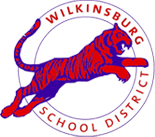English Language Arts (ELA)
Literature remains at the heart of fourth-grade learning. Students build a deeper understanding of literary elements, exploring genre, theme, characters, setting, plot, point of view, text structure, and figurative language such as similes, metaphors, alliteration, and personification.
Classroom learning includes whole-class guided lessons, interactive read-alouds, small group discussions, and independent reading. Students read both fiction and nonfiction and learn to explain their ideas with evidence from the text.
Vocabulary and Spelling: Fourth graders strengthen vocabulary by learning strategies to discover new words, making connections across content areas, and revisiting words often for deeper understanding. Spelling lessons help students become more accurate, confident, and resourceful writers.
Writing: Students practice different genres of writing through a workshop approach. They will write narratives, nonfiction pieces, poetry, and opinion essays, learning from mentor texts and refining their skills through mini-lessons, small group instruction, and individual writing conferences.
Math
Fourth graders at Turner Intermediate use Eureka Math, which helps them build strong, connected math knowledge. This year, students will:
- Gain fluency with multi-digit multiplication and begin dividing larger numbers
- Develop understanding of fractions, including equivalence, addition, subtraction, and multiplication by whole numbers
- Analyze and classify geometric figures based on properties like symmetry, angles, and sides
- Work confidently with large numbers, rounding, adding, subtracting, and comparing values
By the end of fourth grade, students are expected to be fluent in multiplication and division facts through 12. They will record their problem-solving strategies in math journals, explaining their reasoning with numbers, pictures, and words.
To reinforce classroom instruction, students also use Zearn and Imagine Math Facts, which provide engaging practice in building fluency and automaticity with core skills.
Science
Fourth graders explore life, physical, earth/space, and health sciences through engaging, hands-on lessons. They learn to:
- Observe, measure, and collect data
- Make predictions and test hypotheses
- Record and organize information using charts and graphs
- Connect human actions to the health and sustainability of the Earth
Using FOSS kits, students take part in experiments and investigations that encourage them to think like scientists and apply what they learn to the world around them.
Social Studies
In fourth grade, students expand their knowledge of history, geography, and civics. They will:
- Locate and identify states, capitals, major cities, and bodies of water using latitude, longitude, and cardinal directions
- Study forms of government, landmarks, monuments, and U.S. symbols
- Explore historical U.S. events and basic economics
- Demonstrate learning through research-based projects and interactive activities
By the end of the year, fourth graders will have a stronger sense of their place in the world and how history, geography, and government shape the communities we live in.

